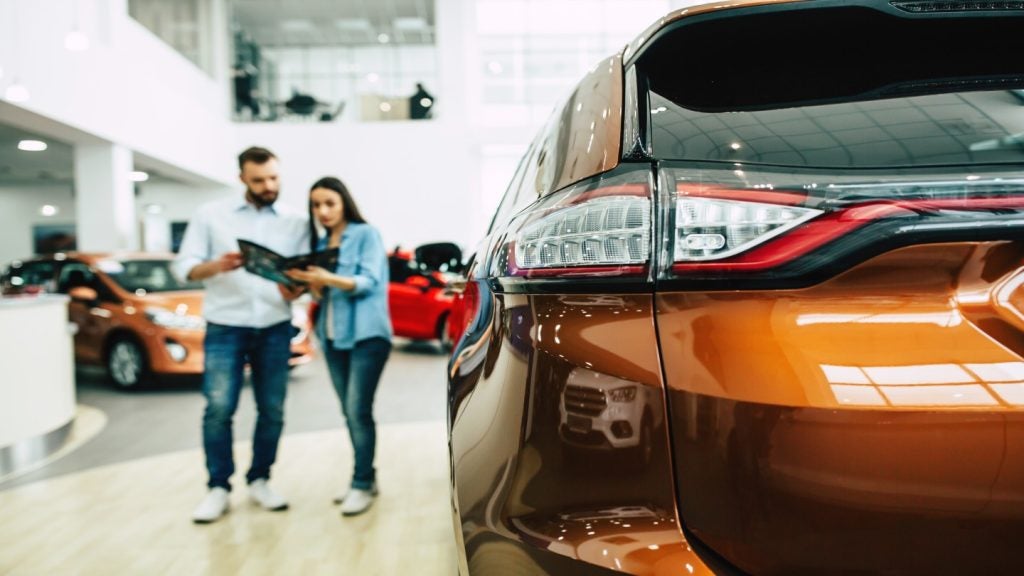
After years of arguments, uncertainty and preparation, Brexit is finally in full force. We talk to car financiers in Britain’s closest neighbour to find out what its real impact has been.
“Everybody welcomes the fact a deal has been done,” says Chris Hanlon, managing director of First Citizen Finance. “Brexit was a dark cloud for a number of years and as an industry, we are happy we can now move on.”
“The UK has been and will probably remain an important part of the economy in the Republic of Ireland. The uncertainty has been un-welcome and that it has ended, although we expect to see some continuing ‘tweaks’, is to be welcomed,” Donal Murphy, says managing director of Bluestone Motor Finance.
It’s true that, seemingly forever, every conversation around car finance, particularly if it involves any kind of cross-border activity, has sooner or late involved the phrase “the uncertainty of Brexit”. But now that Brexit is here, a reality, rather than an ideal or a hypothetical, what does that actually look like?
In many ways, it’s still hard to answer that question given the events of the last year.
“The benefits of certainty will only become apparent after Covid-19,” Hanlon points out.
How well do you really know your competitors?
Access the most comprehensive Company Profiles on the market, powered by GlobalData. Save hours of research. Gain competitive edge.

Thank you!
Your download email will arrive shortly
Not ready to buy yet? Download a free sample
We are confident about the unique quality of our Company Profiles. However, we want you to make the most beneficial decision for your business, so we offer a free sample that you can download by submitting the below form
By GlobalData“While we are seeing the early signs of Brexit on the car retailing industry, some of the potential implications have been obscured by the Covid-19 pandemic,” agrees Murphy. “Across the Republic of Ireland, the country has seen tight lockdown measures. Motor retailing continues to rely solely on distance selling with no Click & Collect or showroom access. Inevitably, this has limited sales of cars and finance.”
The used car price spike
But some effects are already being felt, particularly in the market that has the most trade interaction with the UK, the Republic of Ireland.
“With this caveat, the main impact we have seen is on used car supply and the change on import taxation. Up until last year, around 100,000 used cars each year were imported into Ireland from Britain,” Murphy explains.
“From 1 January, used cars imported from the UK that were originally manufactured in the EU, or another country outside the EU, must have VAT of 21% paid on the invoice price. A tariff of 10% must also be paid on the cost of the vehicle within 30 days of importation and before it can be registered here.”
The immediate effect of these taxes and tariffs is a sharp increase in the cost of buying used cars from the UK. It is only a matter of time before that is reflected in retail prices and residual values.
“Dealers picked up their importing activity at the end of 2020, ahead of the new Brexit-related customs duties. However, valuations and risk for lenders are set to be impacted in the months ahead,” Murphy observes.
Hanlon also acknowledges the impact of Covid-19 in obscuring Brexit’s immediate effects but points out that the way things have gone falls short of a worst-case scenario.
“There is certainly a tone of relief across all sectors that the feared hard Brexit did not happen,” he says.
However, Hanlon also points to a pessimistic picture for Used Car Imports from the UK.
“If we take a look at a pre-Covid Q1 in 2019 v Q1 2021, there has been a significant reduction in Used Car Imports, down 31.35% when comparing both periods,” Hanlon says. “A combination of the new NOx Levy introduced in January 2020 and the perceived complexity associated with Brexit related duties and VAT are most likely the reasons for this sharp decrease.”
While this looks set to be a long-term issue, Hanlon also points to more immediate concerns.
“Another effect of Brexit in the sector, which we suspect will be short-lived as a transitory issue, has been the presence of some teething issues around supply chains, with some motor dealers reporting delays in receiving certain car parts and components, due to cross border movements,” he tells us.
Known unknowns
While we’re beginning to see the earliest effects and initial teething problems become visible, the fact is that in many ways, assisted by Covid-19, the uncertainty is still far from over.
“The situation on values is something we had anticipated, but as noted, it has probably been masked to date by the ongoing pandemic and lockdown conditions,” Murphy says. “I think there remain hurdles yet to be overcome.”
“Our main concern was around a hard Brexit. Thankfully, this hasn’t happened. Both businesses and consumers were prepared as much as possible for both scenarios so, although it is very early, it is expected now that consumer confidence in the domestic car buying market will improve with the return of certainty now back in place,” Hanlon tells us.
“Of course, the continued impact of Covid-19 throughout 2021 was not part of the plan and the speedy execution of the vaccination programme, now well underway, will determine when we can see normal levels of new car sales return to the market. Used car sales have been strong and motor dealers have been doing well to trade under tight Government and public health guidance. It is anticipated that Covid-19 related trading restrictions will subside over the coming months and this is positive news for the recovery.”
But has the effect so far been all negative? Hanlon is able to point to some positives, although they are decidedly one-sided.
“Due to the complexity associated with duties and VAT, it is expected that individual car buyers will not seek to import their Used Cars in the numbers we have seen to date,” Hanlon says. “Instead, they will choose to purchase locally and from Motor Dealers, which is good news for the Irish Motor Finance Industry.”
Looking beyond the immediate future, that much-discussed uncertainty has not entirely left us, and there are many other concerns on the horizon aside from Brexit. Ultimately, even with its closest neighbours, Brexit isn’t the main priority for anyone except the UK.
“I think it is simply part of a smorgasbord of changes facing car finance and car retailing; the pandemic, digitisation, the move to online retailing,” says Murphy. “At Bluestone, we are well equipped with our agile fintech derived business to help dealers and their customers. Brexit or not, the industry is set for change like never before in the coming months.”
“Until we experience a post Brexit period without the presence and impact of COVID-19, it is not clear how Brexit has individually affected the market conditions,” Hanlon tells us.
“Longer term, we do believe the biggest opportunities lie within our own offering to the marketplace – all the time strengthening our customer focus and value proposition, delivering national distribution and all this underpinned by a robust platform. Increased mobility solutions and emerging technologies will continue to present exciting opportunities for stakeholders in the motor industry.”







